More than 11 years revealing secrets because there is no excuse for secrecy in religion – w1997 June 1; Dan 2:47; Matt 10:26; Mark 4:22; Luke 12:2; Acts 4:19, 20.
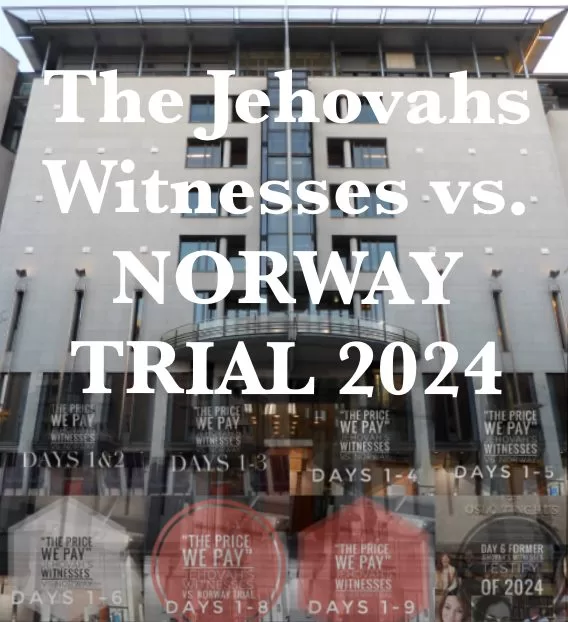
Written by Miss Usato- Watchtower Examiner, first published January 8th, last updated January 19th, 2024
Below are the following Trial days in Order:
Norway’s constitution and laws protect religious freedom, prohibiting religious discrimination and protecting the right to choose, practice, or change one’s faith. The Jehovah’s Witnesses organization started getting state support in 1985, and the process of deregistering started in 2018. They are the 1st religious denomination to lose its status, for now almost a full year of being deregistered. The state claims that Jehovah’s Witnesses prevent free expression, exploiting the theocratic warfare they have designed of the strict practices they teach among their members- mostly involving the detrimental impact on children’s rights in the group. Along with the trial the Organization is trying to be compensated 50 million Norwegian kroner (almost 5 million USD)
This is a serious matter not only for the Jehovah’s Witness Organization and former Jehovah’s Witnesses but also for Norway. The new Religious Communities Act, which came in 2021 will be in effect for the 1st time.
This article will be updated as the trial continues, from January 8th to the 19th, as the 1st 2 days are introductions for both parties to express their views on the case. Below the article is a link to the trial Dates regarding Jehovah’s Witnesses. I’d like to thank Jan Nilsen for updating on how the trial is going, an advocate Larchwood for translating and breaking down the days as they follow, and Ron POMO for their help and translations. Throughout the article of Day 1 is the Summary of Ryssdal’s introduction including Jan Nilsen’s published article in reply to.

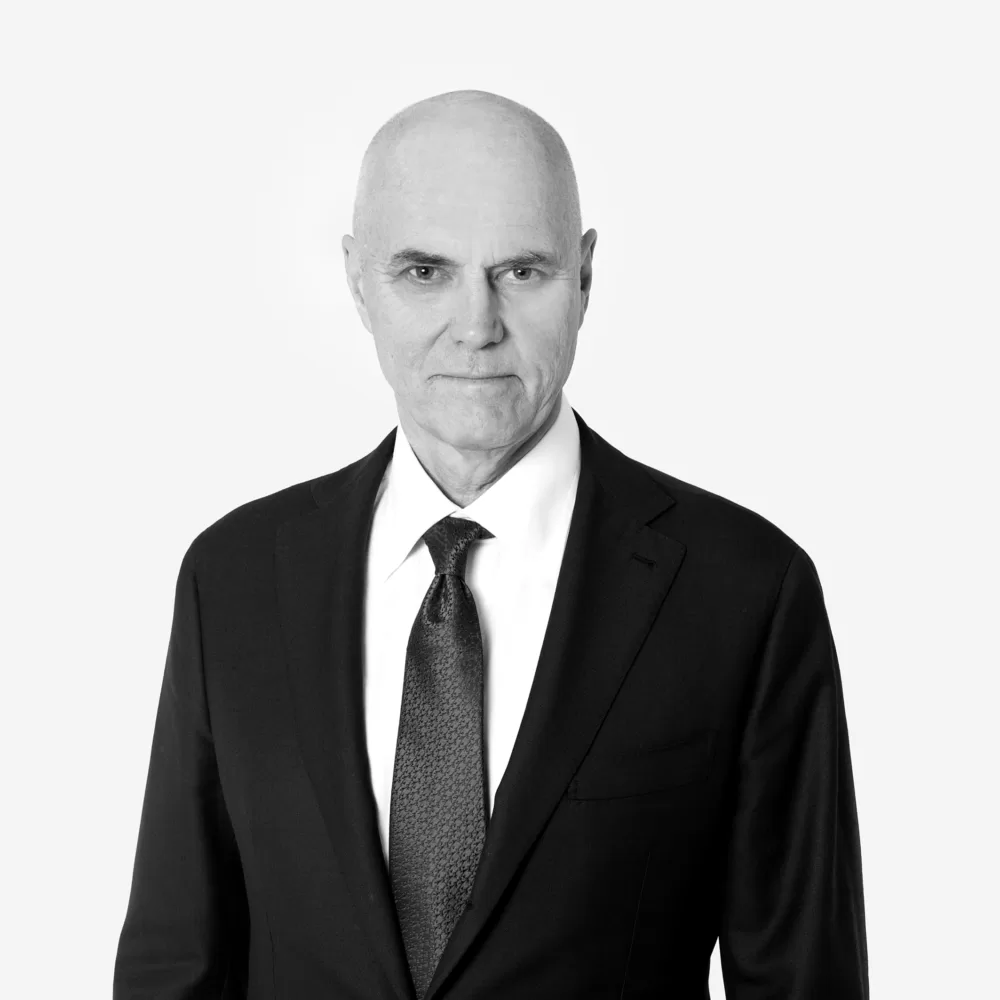
It is day one of the trial, January 8th, 2024. To start the 2nd week of the year 2024 we have an important trial regarding children’s Rights in Violation of Religious Freedom in this organization. Former Jehovah’s Witness Advocate and politician, Jan Nilsen appeared at the trial- as there will be 7 other former Jehovah’s Witnesses to listen to the arguments and to give their testimonies throughout the 2 weeks. This is a long-awaiting trial to see how Norway will take the price the Children and former Jehovah’s Witnesses have paid for being baptized at a young age in the hands of this organization.
–Ryssdal starts the trial by expressing the Jehovah’s Witnesses’ “Historic vulnerability” and the troubles of global persecution they have endured, specifically by democratic societies including countries “which otherwise hold religious freedom in high esteem.”
Yet the government attorney claims that Jehovah’s Witnesses violates Section 2 of the Religious Communities Act and infringes the individual member’s right to freely change their faith or outlook according to Article 9 of the ECHR, Section 16 of the Constitution, and Article 18 of the Declaration of Human Rights. Below are the topics addressed in trial.

–Ryssdal claims that the organization’s exclusion practice was “well known” to those who allow themselves to be baptized, (expressing specifically about minors being baptized) and could not see how it would be an obstacle to receiving state support since “they are not violating children’s rights.” He states that it is very rare that minors themselves are excluded, and that this mainly applies to children over 15 years of age – i.e. children who have reached the religious age of majority.
(Though there are a vast amount of stories credible to this being untrue) He also claims that the “break” between former and current witnesses is untrue, Trying to discredit Jan’s and Rolf Furiili’s testimonies.
Jan- “There’s the fact that the exclusion practice does not have a lower age limit that violates children’s rights. Article 19 of the Convention on the Rights of the Child* states that state parties must protect children from all forms of violence, abuse, and neglect. This includes physical, mental, and sexual violence, as well as non-intentional harm like neglect. Article 19 also requires states to have laws in place to prohibit violence and to implement administrative, social, and educational measures to protect children.
-It is also a fundamental right for children to be able to change their outlook on life and their opinions as they acquire knowledge and experiences. But in the world of Jehovah’s Witnesses, a baptism of a 14-year-old is a lifelong commitment that the child will never be able to walk away from without major consequences for close relationships and family.”
It has been portrayed by Ryssdal that the Jehovah’s Witness Organization believes the practice of exclusion does not make some minors feel that they must stay in the religious community, or that any obstacles are placed for free expression. The Evidence of this not being true would be found in their publications.

-Ryssdal says that he does not want the organization’s material (Watchtower, Awake, Elders Manual, Videos, etc.) to be used in the trial, as the judge questioned him on why they would not do so to illuminate understanding. Ryssdal replied that it was due to their interpretations. He continued that disfellowshipped members can still come to meetings, and participate in activities that take place.
These are the few activities that do not include direct conversation or any sort of communication, nor discussing any further into their stance and livelihood outside of meetings. Those who are shunned are shunned because they have practiced some sort of “sin.”
Jan- “Jehovah’s Witnesses have a practice where you cannot change your outlook on life, change your religion, and move to another organization without major consequences for the lives of individuals. I have experienced this myself, it took me about five years from the time I last participated in the Jehovah’s Witnesses community until I was finally expelled. During these years I generated state support for a denomination I did not belong to. Because the price you pay when you leave, it is too great. There are many people like me.”
–Ryssdal claimed that family ties are not broken and that families still have a responsibility to take care of each other, even in cases where someone is no longer a member. “Any psychological problems among members are not due to such conditions as the state accuses Jehovah’s Witnesses. That any interpretation must be up to the religious community itself.” Yet, he wants their material removed as evidence of the trial so their freedom of interpretation is not questioned as causing a negative effect on lives.
Jan-“You are not free to opt out if opting out has major consequences for completely elementary contact with your immediate family. Their parents, their siblings, their children. Then for the vast majority, it is a forced situation.”

-Ryssdal expressed that the state’s evidence is based on arbitrary excerpts from Jehovah’s Witnesses’ religious principles and that the state has made several procedural errors, misinterpretations of the Constitution, the European Convention on Human Rights, and the UN Convention on Civil and Political Right. As having insufficient evidence, being treated unequally with incorrect facts, and arguing that freedom of religion places limits on the state’s presentation of evidence. According to him, they all establish that freedom of religion is supported by protection against discrimination.
Jan in his article quotes a 2009 Awake found on the Jehovah’s Witness site:
Is it wrong to change your religion?
“No one should be forced to worship in a way that he or she finds unacceptable, or to have to choose between their faith and their relationship with their family.”
This Awake article is about one who decides to leave another religion to be a part of the Organization, as they have claimed God’s one channel. As Jan points out, this is not about leaving their organization but other religions. It’s a hypocritical twist as if they are expressing “it’s your choice” and “it’s up to you to do the right thing” -as long as it is not this organization you are leaving. Weaved in their literature are strong coerced statements, as if to not displease god- do not displease them. You don’t have to be raised as a Jehovah’s Witness to be familiar with this kind of article that “hinders” and forms what seems like a truth of practice in this group, but by actions, word-of-mouth is very much the opposite. This can be seen in multiple practices of the Jehovah’s Witnesses.
An example is the Organization not exactly saying growing beards was a sin, unclean, nor allowed in the group since 2nd leader Joseph Franklin Rutherford strongly disapproved of them, yet with coercive statements their literature is states that having one is not being a good representative of the congregation,

-Ryssdal sets up the narrative for the upcoming days where they will hear the testimonies from former witnesses. He said that these may be “isolated, boring incidents” that do not meet an “elementary requirement for representativeness” and they have a decisive effect on the proceedings, without systematic investigations having been initiated. He is attempting to discredit the former Jehovah’s Witness stories as unreliable or as singular unnoteworthy incidents rather than years of their lives.
Jan- “Jehovah’s Witnesses work actively, worldwide, to get other people to change their religion. But they do not allow their children to do the opposite without cutting off contact with them. Hypocrisy? That is up to the readers to decide. I look forward to testifying again for the State on Friday, January 13, on behalf of myself and the many I have met on my way, people with great wounds and full of need, and feel confident that this is a decision that stands rock solid legally.”
Jehovah’s Witnesses’ lawyer on the state’s evidence: – An eclectic mix of individual events

courtroom: 127
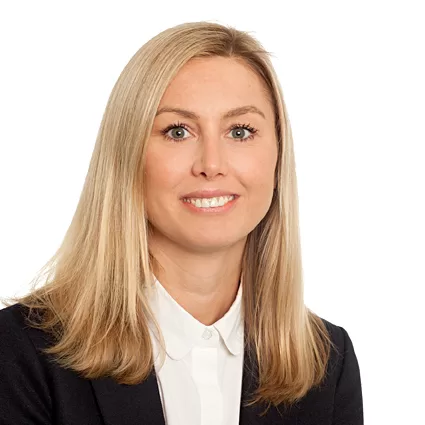
This is Day 2 of the Trial in Norway on January 9th, 2024 Ironically, in a congregation or religious activity such as giving talks, even handling microphones in this organization a woman is not allowed to conduct without her head covered.
The defense team of Norway is of women, and they opened the floodgates on a multitude of matters that need to be addressed.
It’s stated in an article on Vartland that Aarvik outlined the Organization’s hierarchical structure with very little room for local interpretations, supporting the state’s evidence strategy, which includes using JW’s handbooks, magazines, and core texts.
It’s been evident that though Ryssdal, Watchtower Lawyer had asked the judge for their publications to not be included in the trial, this was not approved.
Some of the Court’s Roles and expectations to be overviewed:
• The legal starting point emphasizes no public registration is needed for a religious community.
• The Organization’s practice remains consistent; recent legal developments prompt scrutiny.
• The European Court of Human Rights (ECHR) plays a role in interpreting conventions.
• Focusing on how the Watchtower Organization treats those who resign, (Are shunned, disfellowshipped, or disassociated) based on long-standing practices.
• Analyzing JW’s responses to questions, letters, and inquiries. Their stance on exclusion, baptism, and maintaining family ties.
• Exploring JW in Norway – their membership, history, women’s roles, and financial details. An overview of their response to media coverage and interactions with the legal system.
• Breaking down the procedures for exclusion, the role of judicial committees, and the consequences for those expelled from the community.
The main focus of today’s trial circled the Organization’s practice of shunning, a controlled systematic practice that you could ask any Jehovah’s Witness about and get similar replies.
Enduring through this sort of spiritual manipulation* can have a ruinous effect and unleash a multitude of problems in one’s life, and Aavik did not let this important point waver. She contested the organization’s practice and then the definition of “Shunning” which is defined as evading, steering clear of, dashing, eschewing, or keeping away from.
Humans need some sort of social connection, to help with growth, stability, and well-being. If you are quickly cut off and shunned after having a particular lifestyle such as a Jehovah’s Witness, it majorly affects your life. Shunning is not an act of love, this is pure manipulation. The practice shown in the video above is supposed to depict how one disfellowshipped would “come to their senses” as it was expressed in the trial.
Now, imagine this happening to a child.
–Watchtower argued yesterday that there’s no violation of the right to leave the organization freely, -but if the organizations want their interpretations of the publications to be removed, how can you expect to understand the influence and impact it does on their members, especially when it boils down to how they view someone leaving the organization?
-Aarvik cited that breaking contact with former members, even close family, is encouraged, ceasing only when the former member repents. She referred to previous publications on this as well.
In the courtroom, the organization’s video found on their site ‘Loyalty to Uphold Jehovah’s Judgements’ was viewed

-Aaverik goes into the age of those getting baptized, where the Organization has proudly produced videos and publications on their acceptance and positive lure for young ones to get baptized.
Children as young as 6 years old have been baptized into the organization, and this is not similar to a baptism in Catholicism, where you still have free will and independent thinking. Once you commit what they deem a sin, you are expelled and shunned from the Organization.
-The Organization was challenged on its claim that minors are baptized at a certain maturity level, as they presented evidence of younger baptisms. Due to this, it puts weight on the Organization’s claim that children have ‘free will’ to decide to get baptized.
In the courtroom, the video of ‘Caleb and Sophia- The steps to Baptism’ was played.

A source who was attending the trial today said that this was a great start for the Defense and that Aarvik’s evidence and statements seemed to have stressed and angered Watchtower’s Lawyers.
Links to articles:
This is how the state defends itself against Jehovah’s Witnesses


On Day 3 Wednesday, January 10th, 2024 The state expressed that they believed that the Jehovah’s Witnesses’ strict exclusion practice is a violation of the members’ organizational practices and a violation of children’s rights as defined in the Religious Communities Act and the UN Convention on the Rights of the Child.
In the Oslo District Court of Jehovah’s Witnesses vs. Norway, the courtroom was packed full of Jehovah’s Witnesses to testify. There they sat to defend their experience and views on the matter of minors being baptized along with the effects of being shunned. Most of the witnesses testifying were parents, some previously disfellowshipped and reinstated before- now devoted to the organization, and expressed that the State’s claims are unfair and hurtful. There were 8 families there to testify.
The court was interested in hearing the family’s situations regarding the baptism of minors, and the practice of shunning.
It is said in a Vartland Article linked below that Jehovah’s Witnesses were very keen to point out that children are not coerced to be baptized at a young age.
Steps for Baptism
I’d like to bring up the questions in the Organized book, an important publication used for the use of baptism dedication. Once it is made known that someone wants to be baptized, an elder sets up a time with them to go over an exam of questions that throughout the years have changed and been minimized between 100, 80, and now 60 questions to be discussed. You must comply and answer these questions correctly in the elders eyes to be baptized. It is set up with quoted scriptures, and you are supposed to decide the answer based on the scriptures provided. On the matter of disfellowshipping, it reads:

For most of the day, Witnesses testified about how they had their children wait before getting baptized, one in particular Solveig Torp Dahl expressed her experience. Dahl, a Jehovah’s Witness had been wanting to be baptized at age 11, but her parents had her wait until 15. She emphasized that like every witness the children must go through the same extensive process as everyone else for baptism.
When the court had asked Dahl what would be her reaction if her children decided not to get baptized, she expressed “As a parent, you want the best for your children. But even if it is difficult and hurts, it is respected that everyone has to make their own choice.” “-The Bible teaches us that people have free will and that Jehovah respects that people make their own choices. When he does that, we also have to respect that.”
Dahl was asked to go into her experience in disfellowshipping when she was in her twenties. She explained the shunning in a way that was more or less self-chosen and that if she had acted better to the choice of disfellowshipping things could have been different. “The elders went to great lengths to convince me to stay, but I had made up my mind. When they realized that, they respected it, but made it clear that there would always be a way back.”
Throughout the day other Witnesses told similar stories. There were expressions very similar to ‘Loyalty to Uphold Jehovah’s Judgements’ in the video that was played the previous day in court, saying that God and the congregation were ready to forgive if they were to come back and be reinstated, but that they were not ready to forgive themselves for the sins they had committed. The witnesses were also asked whether the longing for family and the social network was decisive for their return to the congregation.
Although several admitted that this had been a mistake, they believed that it had not been decisive. Getting forgiveness and restoring the relationship with Jehovah was more important. Although the practice of exclusion is strict, the witnesses believed that it had brought with it positive consequences for themselves.
The state’s lawyers then asked Dahl if she could explain to the court what lies in the religious community’s exclusion practice.
Dahl pointed out 3 reasons:
In the end, witnesses were asked by the state court and Jehovah’s Witnesses lawyers feared how things would go for the Organization. The witnesses stressed that they believe this to be unfair, including the restriction for marriages to legally be held in their Kingdom Halls (Churches).

Jehovah’s Witness testify again
courtroom: 127

Day 4 January 11th, 2024 in room 127 of the Oslo District Court.
The lawsuit’s origin lies in a sequence of determinations made by the Ministry of Children and Family Affairs and the State Administrator. These decisions culminated in the denial of state subsidies and the revocation of the registration status of Jehovah’s Witnesses as a religious community.
Both parties are given a 48-hour window to present their witnesses. Yesterday a few Jehovah’s Witnesses took the stand expressing positive involvement with the Organization and its teachings.
Today, it is the Jehovah’s Witnesses’ turn once again. The testimony remains consistent with yesterday’s session, as Jehovah’s Witnesses emphasize the significance of shunning and disfellowshipping practice. They also referenced the “Organized” book (also referred to in yesterday’s post above) to support their claims.
During the proceedings, the Judge inquired about the involvement of Watch Tower/JW literature, prompting the JW witnesses to acknowledge that certain elements are indeed presented in their publications. However, they emphasized that their teachings are primarily based on the Bible. Additionally, an expert witness took the stand and read from documents, although their testimony appeared to be somewhat perplexing.
On the stand, each JW Witness repeated the claim that their practices are strictly guided by just the Bible, not their literature. It was referred to them oddly speaking out as if they were reading bulletin points.
During the discussion, the witnesses delved into the complexities surrounding family members who are not part of the Jehovah’s Witness organization. They mentioned the challenges and intricacies involved in maintaining contact with those who have left the faith, implying that the situation is not straightforward. It seems that one of the Jehovah’s Witnesses faced difficulty in providing detailed responses to specific questions related to this matter, and it was noted that the judge observed one JW witness tearing up when expressing their experience on being excommunicated and out into the world.
Even though the literature is a major part of the foundation of this organization, not one witness acknowledged the existence of its literature, publications, and videos unless pushed to by the judge.

In the afternoon an expert on human rights Professor of Jurisprudence at Østfold University College, Hadi Strømmen Lile came to the stand.
In an article on Vartland linked below, it is explained that Lile said if the Ministry of Children and Family Affairs and the State administrator conclude that the Jehovah’s Witness Organization does engage in negative Social Control, they should be reporting to Child protective services. He argued extensively that states are not free to interpret the content of the convention as they wish. If something is to be a violation, it must be so in all states party to the convention.
While what he is saying isn’t in full agreement with the Organization being in violation, he is highlighting the need for all states to conclude them to be in violation for it to be plausible.
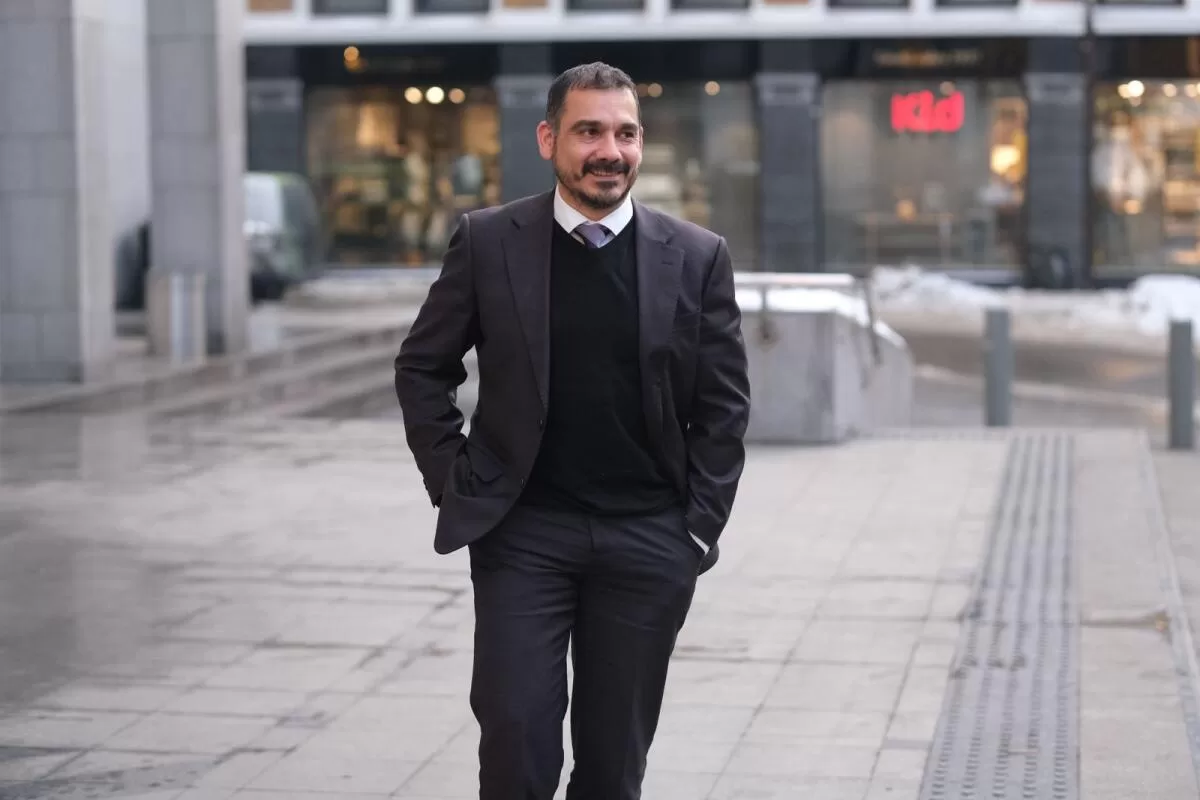
Lile continued,
“If each party interprets the convention as they please, it undermines the entire principle of international law that it is an agreement between the parties.”
Lile then referred to a general comment from the UN Committee on the Rights of the Child, which aimed to define psychological abuse. It was highlighted that isolation is mentioned as a form of psychological abuse, but the question of whether religious exclusion can be considered as such is a matter of interpretation. One person expressed the opinion that including religious exclusion as psychological abuse goes too far, as the general comment does not specifically mention it as such.
It was then mentioned that the “margin of appreciation” allows states to implement their laws that provide greater rights for children, but it should not be used to interpret the Children’s Convention in a way that grants more profound rights than agreed upon among the states. Instead, it was suggested that it opens the door for stricter laws rather than stricter interpretations.
In the case of Norway, it was noted that although the country has the opportunity to pass laws that grant better rights, no such legislation has been enacted specifically regarding religious exclusion. Furthermore, a report mentioned by the legal scholar did not conclusively state that negative social control is not a legal concept in Norwegian law.
The legal scholar also pointed out that Article 19 of the Children’s Convention imposes a duty on the state to implement child protection measures to safeguard the child. According to the Child Welfare Act, children have the right to such protection measures when serious neglect is suspected. In situations where there may be grounds to believe that Jehovah’s Witnesses engage in negative social control, it was suggested that there is reason to believe it could be considered serious neglect. The question was raised as to why child protective services have not been notified by the prosecution in such cases.
At the age of 15, Kare departed from the national church and underwent baptism as a Jehovah’s Witness at 17 years old.
He explains the role of being a board member among Jehovah’s Witnesses and delves into the organization’s governance in Scandinavia, both from a legal and spiritual standpoint. All members contribute voluntarily, and there are 9 individuals spiritually overseeing Scandinavia.
Adhering to the Bible as their primary guide, they delve into discussions about congregations, and their functions, and read excerpts from the letter to Titus. The elder council bears responsibilities, with 1300 male elders in Norway, maintaining the same structures from the organization’s inception.
In the context of daily life within the congregation, there are two weekly meetings where elders deliver lectures. Everyone, including children, has the opportunity to present “sýnikennslur.” (demonstrations) The baptism process is a topic of consideration, contemplating whether a test should precede baptism, often extending over a year. Drawing inspiration from the Bible, they emphasize the significance of loving Jehovah and one another, citing Matthew 16:4. Being a disciple is viewed as a commitment, a surrender to God.
When questioned about distinctions within the congregation, Kåre refutes such divisions, asserting that everyone is regarded as brothers and sisters, even though some may have busier schedules than others. The conversation also touches on familial responsibilities, highlighting the belief that neglecting one’s children is considered more serious than being unfaithful.
There is then a discourse surrounding disfellowshipping and exclusion, affirming that elders, akin to priests, shoulder the responsibility. Unbaptized individuals are not subject to exclusion; this only occurs post-baptism. “Jehovah’s Witnesses adhere to a structured framework, extending a welcome to all. Anyone is free to partake in meetings (singing and listening), but the privilege of delivering lectures is reserved for baptized individuals.”
The discussion notes that disfellowshipped individuals are the ones who ostracize Jehovah’s Witnesses, and it’s exceedingly uncommon for children to undergo disfellowshipping.
In the event, an elder faces exclusion, whether grandparents maintain contact with their grandchildren is contingent upon the family, not the congregation.
Links to articles 01/11/2024:
The Witnesses for Jehovah’s Witnesses- Why haven’t you reported to child protection?

The Former Jehovah’s Witnesses Testify:


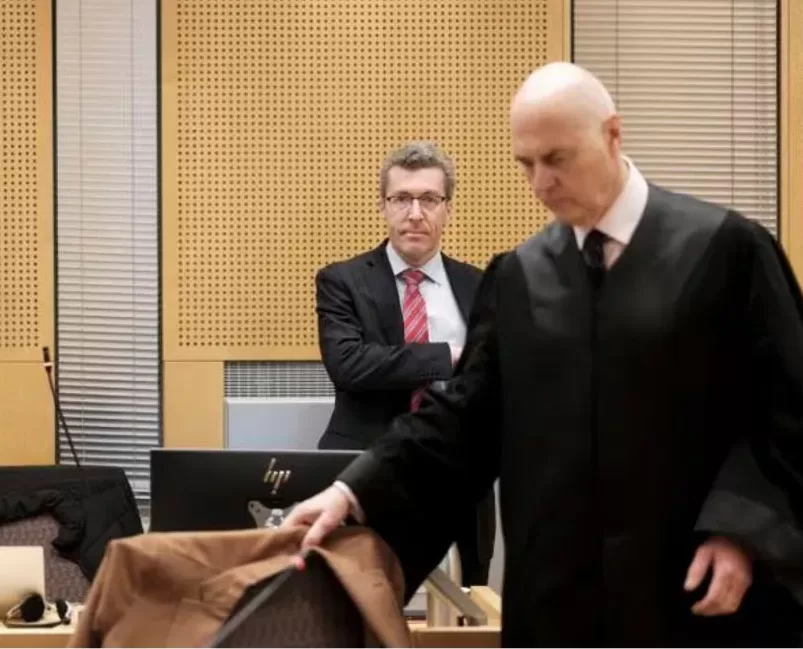
It is Day 5, January 12th, 2024 of the Trial of Jehovah’s Witnesses vs. Norway and it is the day for the Former Jehovah’s Witnesses to testify regarding their personal experiences in the Organization, and once they were expelled out.
Before the testimonies though, Kåre Sæterhaug, a senior member of Jehovah’s Witnesses wrapped up his testimony that began yesterday by going into various aspects of the community’s social and religious practices. He highlighted two weekly meetings centered around preaching and faith discussions, underscoring the importance of private interactions. Within the Kingdom Hall for disfellowshipped persons, socializing is minimal, lacking typical gatherings like coffee events or meals.
Addressing rituals, Sæterhaug focused on weddings, particularly an open ceremony where anyone is welcome. However, individuals excluded from the faith cannot participate as witnesses or bridesmaids, emphasizing the community’s commitment to maintaining spiritual unity. He also touched upon financial transparency, noting the organization’s reliance on voluntary contributions, with global efforts contributing to relief in less fortunate countries.
When questioned by the judge about whether members can face sanctions for maintaining contact with excluded or resigned family members, Saterhaug clarified that the congregation does not interfere in such matters. He expressed the belief that dictating the level of contact someone should have within their family is not within the congregation’s purview, as it pertains to individuals’ relationships with God.
The judge sought further clarification, asking if there are no sanctions for those with a more liberal attitude toward the excluded. Sæterhaug explained that the way contact is practiced afterward may vary, and sanctions would only be considered if someone fundamentally disagrees with the established arrangement.
The Elders’ Book, considered a religious text, was explored. Sæterhaug clarified that it offers guidance rather than strict rules. Laypeople, known as Elders, consider various factors in decision-making, including individual conscience. The book also addresses social dynamics post-excommunication. Regarding the practice of shunning, Sæterhaug explained it as a biblical directive, emphasizing that individuals have personal choices in implementing this guidance, and there’s no one-size-fits-all rule.
The judge then presented a hypothetical scenario: “What if a mother continues to have the same contact with her child, even if the child joins another religious community?” Sæterhaug responded that it ultimately depends on her conscience, emphasizing that she would not risk being excluded unless she expresses fundamental disagreement with the established arrangement.
When asked about the treatment of unbaptized members, he highlighted the importance of unique responses based on individual conscience and varying circumstances. The financial model of Jehovah’s Witnesses, relying on voluntary contributions without a fixed budget, was detailed. This transparency extends to global humanitarian aid efforts. Sæterhaug discussed the role of the Governing Body, the highest authority, responsible for global guidance. He emphasized the importance of local variation, noting that while core principles are universal, practices may differ. Lastly, he touched on the distribution of literature, emphasizing that it is done globally for free, with the Elders’ Book considered essential in guiding spiritual leaders.
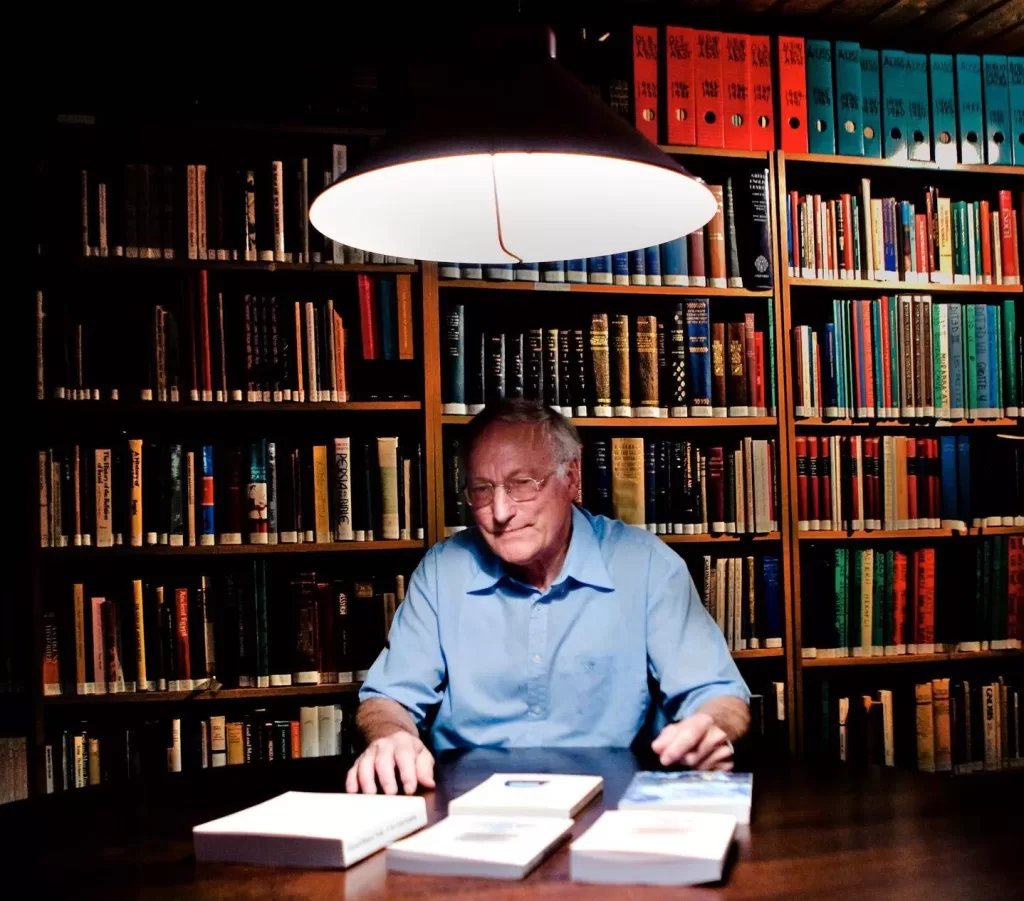
Rolf expressed a deep love for being a Jehovah’s Witness (JW) and stated that if given the chance to live his life again, he would make the same choices. However, he believes that many individuals who are now disfellowshipped should not have faced such consequences according to the Bible. Initially attempting to address concerns internally, he eventually wrote a book, leading to his own disfellowshipping.
During questioning by the state, he discussed the practice of shunning and confirmed that as a Circuit Overseer (CO), he enforced procedures for congregations to follow. He emphasized the significance of the “Shepherd the Flock of God” book, considering it a rule book governing the behavior of congregations and elders.
He highlighted the role of the Watchtower as the main publication, emphasizing its focus on Bible study and the purpose of its articles. Mentioning the book “Keep Yourself in God’s Love,” he expressed a perception that the literature has been simplified over time, deviating from the deep Bible study that Jehovah’s Witnesses were previously trained in.
Addressing changes in the organization, he discussed the shift of power from the Body of Elders to the Governing Body (GB) in 1976. He described a loss of freedom and increased micromanagement, attributing unlimited power to the GB. He shared how the GB claims to be chosen by God to interpret the Bible for all members, who are expected to accept their teachings unquestionably. Illustrating the impact, he revealed that his friends now shun him based on directives from the Governing Body. Despite sending his book to longtime friends, they refused to read it, adhering to the GB’s instructions, leading him to characterize the organization as a dictatorship where dissenting thoughts are not allowed.
Furuli was quoted “The Governing Body’s teachings as of today is based 90% on the Bible … And 90% of those who are disfellowshipped by the current system should never have been disfellowshipped.”
About the congregation elders, Furuli said “Whenever there are instructions from the Governing Body, the elders “jump” and obediently follow the instructions straight away, as a matter of course. In all things, always.”
Articles on Rolf along with his book are linked here:
Norway Religious Abuse on Trial
Asked for reform in Jehovah’s Witnesses – was excommunicated after 56 years as an elder

Hilde leads the Hjelpekilden organization, which focuses on providing assistance to individuals with negative experiences related to religions, with a notable number seeking help from Jehovah’s Witnesses. She shared insights into the organization’s background, highlighting her connection as being married to someone raised as a JW. People reaching out for help include those who fear breaking away, individuals who have already left and find themselves isolated, sometimes dealing with psychological trauma.
The main challenges faced by these individuals involve losing their social network and grappling with doomsday fears. Many seek assistance to lead a life free from social control, and the organization aims to support them in moving forward. The consequences of breaking away, such as losing contact with the congregation, are discussed, with some expressing the fear of leaving.
The discussion extends to vulnerable youth, issues of mental leadership, and experiences of children and youth growing up as JW. It emphasizes that it’s not just about actions but also thoughts. Notably, one-third of those seeking help from Hjelpekilden are former JWs. The conversation touches on the complexities of state support, highlighting common features among those seeking help, including concerns about suicides, suicidal thoughts, and psychological trauma.
Additionally, there is a mention of individuals who choose to return to the religious community, noting that they often do not reach out to Hjelpekilden in such cases. The organization has faced challenges when contacting the police, particularly regarding minors, expressing concerns about the mistletoe of state support in these situations.
Here is the link to the Organization Hilde is apart of: Hjelpekilden Organzation

Therese holds a crucial role as a key witness, delivering an impactful testimony that left a significant impression. Her performance was exceptional, described as having “smashed it.” There was a moment when she displayed remarkable strength despite the emotional intensity, while half of the people accompanying her broke down in tears. Throughout her testimony, she spoke with a passionate and determined demeanor, describing the background of her experience within the Jehovah’s Witnesses (JW).
Therese shared her journey as a third-generation JW, having been baptized at 15, leaving the community at 30, and then again at 35. Despite a relatively good childhood, she often felt lonely, being the only JW in her school. Nearly her entire family belonged to the JW community. She discussed the baptism process, expulsion, and the reasons behind it. At 18, she broke up with a secular boyfriend to avoid exclusion. Her marital experience included her husband’s infidelity with her best friend, and she recounted the judgment committee’s involvement, leading to her exclusion for drinking.
Opening up about the challenging period of exclusion for alleged sexual misconduct, Therese described experiencing depression, suicidal thoughts, and a fear of doomsday. Despite these struggles, she eventually got reinstated. Her story evoked strong emotional reactions from the audience, with many visibly moved to tears.
She further detailed the arduous process of returning to the JW community and the difficulties she encountered. As she went into her realization that much of what she believed was untrue, citing manipulation from the governing body, she lived a double life for two years until facing exclusion once again. Regrettably, she has severed ties with her family and maintains very little contact with her daughter, ex-husband, and mother. Therese also touched on her perspective on baptism, emphasizing its profound impact on life, even more so than getting married. Additionally, she revealed being diagnosed with bipolar disorder and later developing PTSD after her expulsion from the Jehovah’s Witnesses.

Noomi occupied a seat in the back benches of the courtroom alongside other former Jehovah’s Witnesses. As she observed the proceedings, she happened to spot the same elder who had disfellowshipped her, prompting her to whisper, “I am so ready for this.”
Delving into her background, Noomi shared her upbringing as a Jehovah’s Witness in Sweden, surrounded by family members who had faced expulsion. Despite a safe upbringing, she was restricted from forming friendships outside the JW community, defining her world within those boundaries. Witnessing the expulsion of others, she harbored fears for their well-being.
Baptized at the age of 13, Noomi never anticipated being excluded. Driven by a strong belief, she feared that without baptism, she would not survive Armageddon and witness paradise. Moving to northern Norway at 18 to support small congregations, she faced expulsion due to a romantic relationship, reported by fellow congregation members. Recounting an elder meeting where she was warned at the age of 17, she felt isolated with three elders.
Despite not feeling guilty about her actions, she continued her relationship and opposed privileges. Overwhelmed by anxiety and panic, she dreaded expulsion and the potential loss of her mother. Describing the moment of expulsion in front of her parents, she felt a profound sense of loneliness. Her boyfriend left her under the pressure, and she lost faith, never returning to the Jehovah’s Witnesses for the past decade.
Noomie reflected on the challenging process of rebuilding her life, grappling with complex PTSD. Despite being told she could return to the congregation for family unity, she maintained limited contact, primarily during illness or to connect with her grandchildren. She likened expelled individuals to being perceived as a virus, emphasizing the long and difficult journey of losing faith.
An article on Vartland linked below goes heavily into the practices of the Jehovah’s Witness organisation, but also into the story of Noomi Pilot. It expresses her lifelong fear of exclusion, stating that this fear has been present since her childhood, making her apprehensive about the prospect of not being part of paradise. Raised in Luleå, Sweden, the 27-year-old has closely witnessed the exclusionary practices within Jehovah’s Witnesses, with multiple members of her close family allegedly being ostracized from the religious community.
Noomi herself has experienced firsthand the consequences of being ostracized by the congregation and her family. At 18, she was excluded from the religious community but allowed to live at home, where her parents provided necessities. However, living as an outcast at home took a toll on her mental well-being, as she felt treated like a stranger.
The trial in the Oslo District Court focuses on Jehovah’s Witnesses’ exclusion practices, with the state arguing that these practices hinder free opt-out, especially for minors. Members who opt out are allegedly cut off from contact with family and friends within the congregation, potentially pressuring them to remain in the religious community. The state contends that the exclusion practice also exerts negative social control over baptized minors, violating their rights. Admittance as a full member before the age of 18 means that baptized children can face exclusion for breaking the community’s rules.
In response to these concerns, the State Administrator in Oslo and Viken has denied state subsidies and public registration to Jehovah’s Witnesses for the past three years. Jehovah’s Witnesses have countered this by filing a lawsuit.
Jørgen Pedersen, spokesman replies to the article:
“Jehovah’s Witnesses encourage parents to take loving care of their children. They do not control the family life of the members. Each family must make its own decisions in matters of child-rearing, and the religion of Jehovah’s Witnesses does not interfere with family relations.”
To the Right is just one example of an article found on the organization’s site, “Keep Yourselves in God’s Love” pg. 208. Jehovah’s Witnesses face disfellowshipping if they are deemed unrepentant after committing significant sins. This is an old tradition/ practice in this organization, that has been stated by their Governing Body leaders on a teaching that will not waver. This is mainly because it is passed off as an “Act of Loving Provision.” Once disfellowshipped, individuals are subjected to shunning by their family and friends. This punishment, unless reinstated, extends for the rest of their life, inflicting profound emotional distress. While the Scriptures advise limiting association with wrongdoers, the Watchtower’s implementation of disfellowshipping significantly diverges from biblical guidelines.

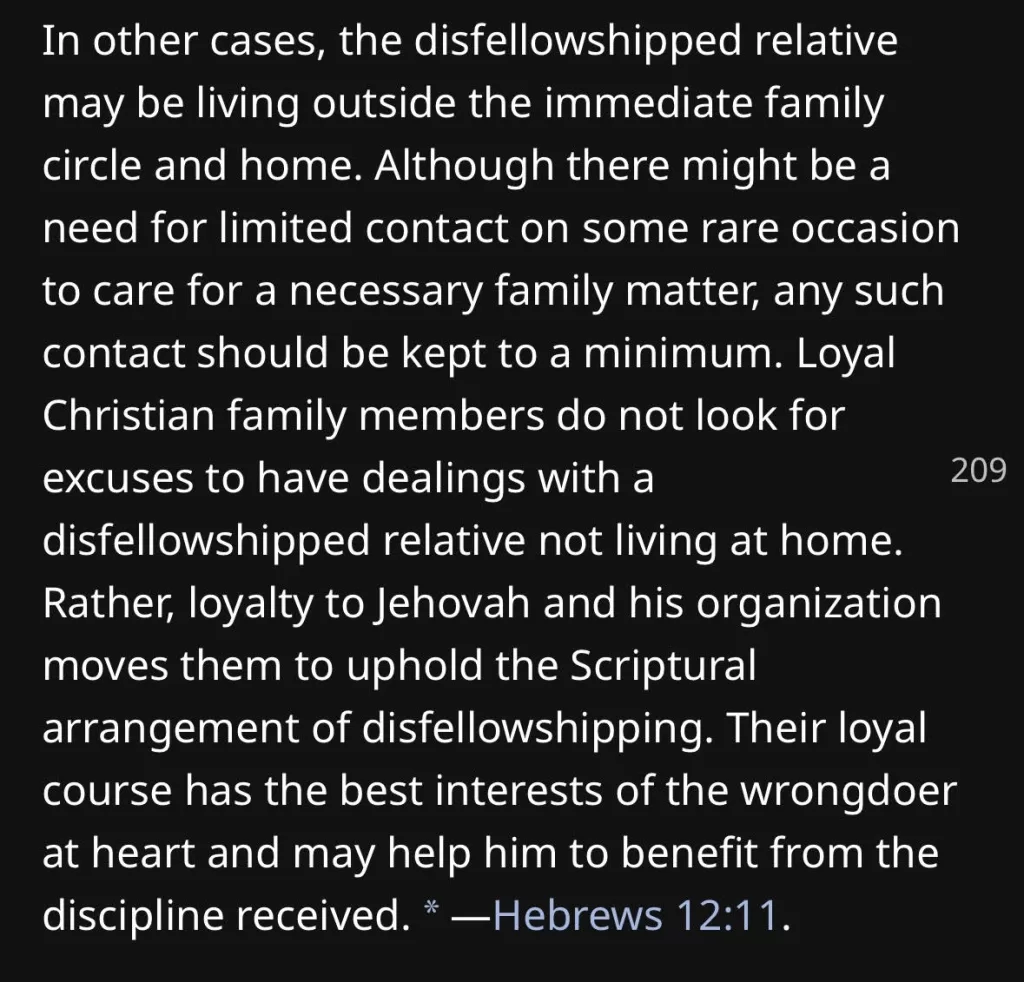
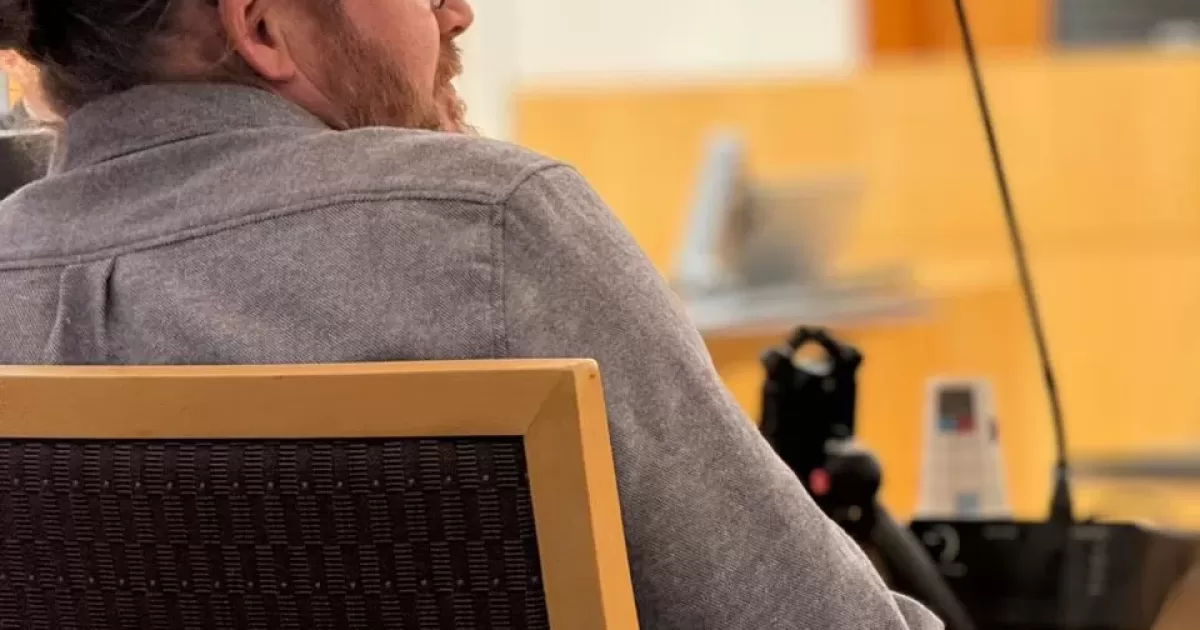
Jan shared insights into his background, describing a typical upbringing within the Jehovah’s Witnesses community. He discussed his journey, emphasizing the significance of new understandings, unity, and his baptism at the age of 17. The JW community was not just a belief system for him; it was his identity and social network. Jan went into the process of expulsion acknowledging that, before he fell away, he hadn’t given much thought to expulsion, recalling a friend who was expelled as a young man when he lost faith.
Remaining active until around 2014, Jan gradually lost faith but attempted to stay within the faith for the sake of his family. However, he was expelled from the family in 2017, and the official expulsion from the JW community followed later. Coping with the aftermath, Jan needed substantial public support for his life transition, undergoing 2.5 years of therapy and a month of hospitalization.
Discussing his three children and a divorce in 2016 from a fellow JW, Jan described his strained relationship with the family that bid him farewell. He had minimal contact, receiving only one phone call from his father informing him of his grandmother’s death. While he saw the family briefly during the funeral, subsequent interactions were limited, primarily with family members who also broke away.
Jan touched on the purpose and reasons behind expulsions within the JW community, exploring relationships with individuals seeking a way out and the challenges faced by “paper members” (PIMO, Physically in and Mentally out) who couldn’t speak publicly or join secular associations. He discussed the rules on expulsion outlined in the elder’s manual and elaborated on significant life events, including baptism, marriage, divorce, resignation, and the loss of faith.
When Jan attempted to share his psychological experiences after expulsion, the lawyer intervened, redirecting the conversation. The JW lawyer inquired about the number of people Jan knew who were expelled in adolescence, leading to discussions about others known to Frode, who had resigned. Jan then jumped into topics such as brainwashing, his father’s role, interviews, activism, and the impact of his studies on his faith. The accumulation of factors and experiences within congregations contributed to his loss of faith.
Despite the challenges, Jan spoke positively about his new life, detailing his gradual improvement and happiness. He successfully built a new social network and actively participated in politics. The conversation concluded with further exploration of Jan’s decision to leave the Jehovah’s Witnesses.
Jan’s thoughts on his day on the stand can be found here, in his Reddit post:
Links to articles 01/12/24
Ex-Witness hits back at board member of Jehovah’s Witnesses: -Pure Nonsense!
Naomi (18) lived at home when she was excluded: Was treated like a stranger
More details on Day 5 can be found here through Larchwood’s posts:
Additional detailed notes of Day 5
To show your support to these courageous souls, comment at the bottom of this article or click here, to Larchwood’s post and comment:

The Former Jehovah’s Witnesses Testify:
T, S.H, Maria Stenhaug and Rakel Fjelltvedt
On the state’s side, two female lawyers represent, and 2 secular experts:
Teguis Santana Vega, Kari Halstensen PhD
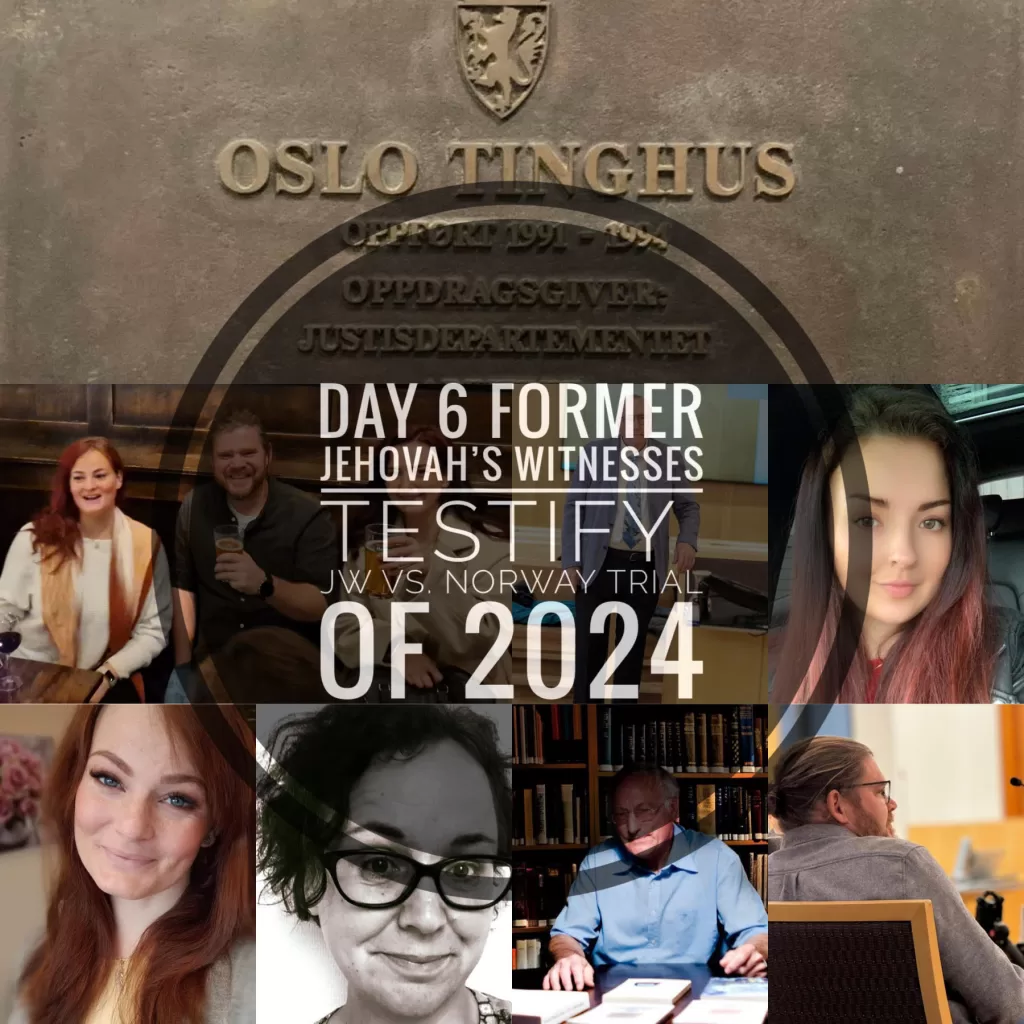
DAY 6, January 15th, 2024 Is the last day for the former Jehovah’s Witnesses to testify. 8 out of 10 testifying are women. Four courageous former Jehovah’s Witness women testified in court.
Jan Nilsen who attended court stated that the 1st few rows in the room were taken by Jehovah’s Witnesses.
Maria Stenhaug, now 49, born into the Jehovah’s Witnesses congregation, was excommunicated in 1995. Her family background includes parents, a grandmother, and uncles who are Jehovah’s Witnesses. None of her siblings were baptized. Despite receiving support from the network, she had a tumultuous journey. She discussed her upbringing, marked by isolation, mandatory meetings, and association within the congregation. Doubts about befriending non Jehovah’s Witnesses lingered. Baptized at 13/14, she became an unbaptized publisher at 12, attending meetings and adhering strictly to literature.
Aware of the possibility of excommunication, she didn’t believe it could happen to her. As she grew older, being a Jehovah’s Witness became more challenging. Fearful of expressing doubts, she faced difficulties from 8th grade, contemplating suicide and struggling academically. Marrying within the congregation posed challenges, with limitations imposed due to premarital relations. Facing separation, she met someone else, leading to her excommunication in 2005. Losing her entire network, she formed a new one, maintaining limited contact with Jehovah’s Witness family members. Despite her parents’ reduced congregation activity, they faced questions about their contact with Maria. She highlighted situations of contact with family members and discussed the reasons for exclusion.
Baptized at 14, she married in 1994, experiencing struggles with her identity, concerns about homosexuality, and marital issues after 2001. Despite being a faithful member, critical thinking developed. Her ex-husband’s mistreatment of their children lacked elder support. Emphasizing the sanctity of family, she wouldn’t return after excommunication. During a period of sick leave, overwhelmed, she didn’t perceive changes in Jehovah’s Witnesses’ practices.
Maria maintained minimal contact with Jehovah’s Witnesses, connecting with ex-members and friends through the support network. She concluded by discussing the challenges of breaking a marriage within the Jehovah’s Witness community.
Vega, a public employee working in child services and the police’s competence team for social control, focuses on negative social control in close relationships. While acknowledging limited knowledge of Jehovah’s Witnesses, she describes them as kind people. Discussing negative social control’s impact on children, she emphasizes its hindrance to development and provides examples, such as limitations on social skills and childhood obesity.

Highlighting cases of social control in Norwegian society and immigrant communities, Vega notes an increase in cases. She collaborates with Hjelpekilden for better statistics on religious communities. When asked about Jehovah’s Witnesses, she clarifies her expertise in social control rather than faith, discussing pressure and coercion on JW children, including meeting attendance and baptism.
Kari, a Ph.D. psychologist with 18 years of experience, explores the intersection of psychology, religion, and mental health. Drawing from clinical work with former Jehovah’s Witnesses, she expresses the psychological impact of religious beliefs on relationships, identity, and moral rules. Kari stresses the importance of belonging, particularly for children, and the consequences of denying one’s true self.
Examining attachment theories, Kari underscores the significance of early relationships and the role of friends in personal development. She explores the impact of expulsion on children, comparing it to the adoption process. Highlighting the vulnerability of young individuals, she also discusses the fear and anxiety associated with elders’ meetings and the profound effect of losing family ties.

The burdensome nature of exclusion, addresses social stigmatization, shame, and isolation is brought up. Kari explores how relationships with God influence mental health and addresses psychological violence, considering negative social control as part of it. Discussing the threat of not belonging, Kari argues that 15-year-olds may be too young to choose a religion, expressing concerns about future burdens. Not affiliated with Hjelpekilden, Kari provides a comprehensive perspective on the psychological aspects of the case.

“Those who make it through life, have to fight for those who didn’t make it. This is how things are connected.”
Rakel Lima Mountainwood, born in 1997, is a nurse and a former member of the Jehovah’s Witnesses. She was born into a family deeply involved in the organization, with both her parents and grandparents being Jehovah’s Witnesses. Growing up, Rakel had four younger siblings and her father served as an elder. She had a large social network within the congregation and was actively involved in the Jehovah’s Witnesses as a child, alongside her family.
Rakel shared her experiences as a child, including her baptism at the age of 17 in 2014. Most of her friends had already been baptized, and she felt pressure to follow suit. Before her baptism, she was forcibly admitted to a psychiatric ward due to anorexia, which made her feel even more compelled to get baptized.
In retrospect, Rakel believed that baptism was a significant life choice and felt that it would have been better for her to wait. She also discusses the topic of exclusion and provides insights into her upbringing within the congregation. Rakel’s time in the psychiatric ward allowed her to reflect on her experiences, and she discusses the events that led to her eventual exclusion from the Jehovah’s Witnesses. However, she omits sensitive details about a non-consensual incident or crime that occurred while she was out with fellow Jehovah’s Witnesses. Rakel’s best friends informed her that if she didn’t report the incident to the elders herself, they would do it for her. As a result, she met with a Judicial Committee, consisting of two elders. Unfortunately, she received no comfort during this process. Instead, she was blamed for her choice of clothing, being out on the town, and her behavior, with no relevance placed on the traumatic incident itself. The elders even suggested that involving the police would reflect poorly on Jehovah’s name because she had been at a club.
Rakel acknowledges that what happened to her was a crime and should have been treated as such. The whole experience was traumatic, and she emphasizes the lack of support or concern shown to her by the elders or anyone else within the community. This occurred while she was still committed to the hospital, and no one checked on her well-being.
She also opens up about her mental health struggles, including suicidal thoughts and self-harm, which intensified after she married someone who did not grow up as a Jehovah’s Witness but was baptized as an adult.
As Rakel neared the completion of her nursing education, she began to disagree with the Jehovah’s Witnesses policies on blood transfusions and abortion, which further contributed to her realization that she no longer aligned with the organization. During this time, her mother, whom she had previously been excluded from, was contacted and came to the hospital. Despite not being officially disfellowshipped, Rakel had stopped attending meetings and experienced a form of social isolation known as soft shunning. It was during this period that she lost her faith, as she began to sense that something was fundamentally wrong within the Jehovah’s Witnesses. She recounts the difficult process of leaving the Jehovah’s Witnesses and the subsequent shunning she experienced. She decided to resign from the congregation and expressed her concerns about never seeing her younger brothers again to her parents. She said goodbye to her parents and sent a text to the elders, formally disassociating herself from JW and requesting that they stay away from her. She understood that this would result in shunning, and she only wanted confirmation that she was out of JW and that the elders wouldn’t keep any records. After receiving confirmation, the announcement was made, and the shunning began. People told her goodbye and explained that they had to shun her because it was mandated in the Bible. Since then, Rakel has had minimal contact with her siblings and limited contact with her parents.
Rakel clarifies that, in her experience, shunning is mandatory for all JW members and is not a matter of individual choice. She acknowledges that her parents see it as a test of loyalty to Jehovah, but she would never subject her child to such treatment. While she understands that her parents love her, their religion holds greater importance to them. She remembers others who were also excluded when she was a child, receiving messages from family and friends stating that they would no longer have contact.
Rakel has written a novel inspired by her experiences growing up in the JW organization and the profound impact it had on her life. Her site related to it can be found here:
Rakel’s Website relating to mental health
Rakel continues discussing the question of whether it is natural for parents to shun apostates, emphasizing that she would have been shunned regardless of speaking out about JW abuse. The reason for her shunning was her disassociating herself, not speaking out.
During an interview with JW lawyer Ryssdal, Rakel expresses the emotional pain of being shunned by her own family, regardless of the reasons behind it. Ryssdal tries to normalize shunning by suggesting that it is natural to avoid contact when someone no longer believes. Rakel responds calmly and counters his arguments. Ryssdal attempts to pick on the difference between disassociating and disfellowshipping, but Rakel remains composed. He then brings up the sensitive topic of her violent husband and asks if she reported him to the police. Rakel confirms that she did report him and that the police handled the situation. However, she mentions that the previous incident at the club, where she was a victim, was not reported to the police. Ryssdal reads from the JW elder book Shepherd the Flock, referring to a section that states it is not wrong to report to the police. However, Rakel points out that the book does not actively encourage reporting. He then reads from the elder book ‘Shepherd the Flock’ and mentions that it states that it is not wrong to report to the police. However, Rakel points out that the book does not actively encourage reporting and avoids taking responsibility for not reporting a specific incident.
Ryssdal asks Rakel why the incident was not reported, questioning the elders’ actions. Rakel explains that a report would not have been successful as there were no witnesses, and she could not bear the procedure of gathering evidence at that time. Ryssdal then asks Rakel about her feelings about her new religion. She responds that it is a conservative religion, similar to herself, but she feels more freedom compared to being in the JW organization. Ryssdal confronts Rakel with articles and quotes, including one where she mentions being happier in her new religion. He also asks if her parents see their grandchild and if they support her. Rakel explains that her parents have provided some financial support and installed an alarm system for her, but their support has been minimal. He then inquires about how Rakel’s father found out about the sensitive incident in the 1st place. Rakel reveals that there was a lot of shame surrounding the incident and how it has affected her, expressing that nobody, including her father, supported her during that difficult time.
Rakels Story can also be found here by Larchwood’s post:
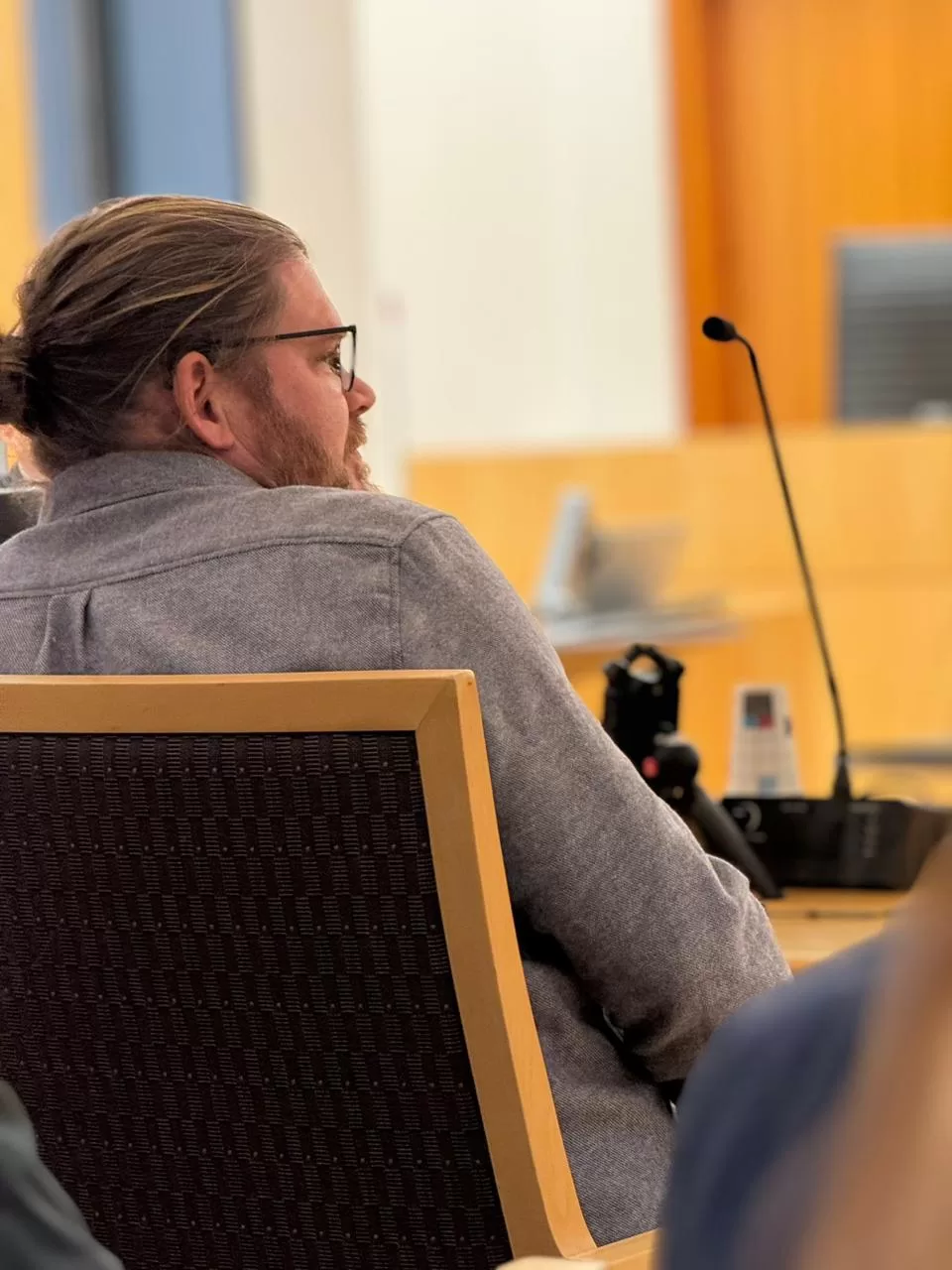


Jehovah’s Witness Lawyer Ryssdal and the Judge conversate in the court room about the practices of shunning along with their views on the baptism of minors.

FORWARNING TO BE ADVISED- the following trial has claims that can be triggering, given by the Jehovah’s Witnesses Lawyer Ryssdal that can affect former Jehovah’s Witnesses regarding their shunning practice.
Jehovah’s Witness attorney Ryssdal contends that the State’s determination, reportedly relying on 90% of JW’s literature, is unlawful. He asserts that examining Religious Holy Texts is not within the State’s legal purview and calls for the dismissal of these claims. Ryssdal disputes the State’s assertion that even unbaptized children can be shunned, labeling it as a misunderstanding that reflects the State’s incompetence. Furthermore, he argues that there is no evidence indicating harm to any disfellowshipped individual and attributes the origin of the entire matter to three disgruntled former members.
This is referring to Jan Nilsen, Rolf Furuli, and another wishing to stay anonymous.
Ryssdal disputes the notion that individuals under 18 should be considered children in religious contexts. Ryssdal argues that, except for one witness from Monday morning, there are no presently damaged children, and that particular case occurred 30 years ago. According to him, anyone above the age of 15 should not be classified as a child in religious settings. He asserts that the State lacks the authority to dictate what is in the best interest of a child and contends that there is no evidence of mental or physical harm to any child.
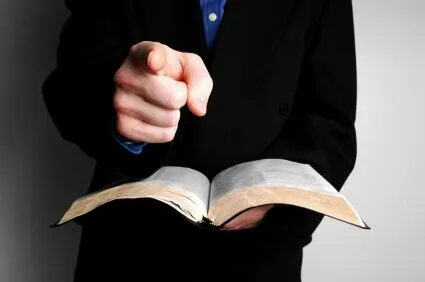
Ryssdal emphasizes that experiencing social consequences, such as those related to sports, relocation, and changing environments, is a normal outcome of leaving a community, and this applies universally, including to Jehovah’s Witnesses. He underscores that there is nothing extraordinary about JW in this regard. Additionally, he cites the Nygard case, which the Watchtower (WT) won in the Supreme Court, as a relevant precedent. He reiterates that the State lacks the right or competence to interpret religious texts, considering it an abuse for them to attempt such interpretation. Ryssdal argues that the community (Watchtower, Jehovah’s Witnesses) should autonomously determine their actions. When the judge poses a hypothetical scenario where the community prohibits any member from leaving, Ryssdal asserts that it would be a legal violation, allowing state interference.

You can find more about the case mentioned here, on a past AvoidJW article:
However, he contends that based on the stories- like Noomi Pilots that was published earlier this week, and that all witnesses were free to leave at their discretion, overlooking the consequence of being shunned by family. Ryssdal emphasizes that every action taken by a Jehovah’s Witness is a personal choice between them and their God. He claims there are no universal rules; each individual decides for themselves. According to him, baptism is a personal choice, and most Jehovah’s Witnesses don’t dwell on the possibility of disfellowshipping, viewing it as a rare concern.
He asserts that the Judicial Committee (JC) or elders don’t actively enforce shunning; it remains a personal decision. Ryssdal emphasizes that the Watchtower/Jehovah’s Witnesses (WT/JW) cannot be held responsible for these individual choices. He cites the two “shunning-verses” from the Bible that JWs adhere to, questioning if the State intends to ban the Bible, adding that objections cannot be raised against biblical teachings.
Ryssdal then distorts Jan Nilsins testimony by completely misquoting it and references his early letters, dismissing them as “not serious.”
When challenged by the State on why this wasn’t raised during Jan’s testimony if it was deemed relevant, Ryssdal failed to provide a satisfactory answer.
Notably, the Jehovah’s Witness lawyers never questioned Jan about these matters when they had the opportunity, likely because they were aware that he would have addressed them. Instead, they choose to bring it up in their closing statements, which is disappointing.

Ryssdal contrasts with Furuli, noting it has been 50 years since Furuli served as a Circuit Overseer. He dismisses all witnesses’ accounts as mere anecdotes and isolated stories, deeming them irrelevant.

The presentation then takes a turn into a lengthy discussion about how Jehovah’s Witnesses are integrated into society, emphasizing that children within the community are doing well. It is highlighted that 67% of all baptisms in Norway are individuals born into the faith, constituting two-thirds of the total baptisms.
He discusses the practices of disfellowshipping and shunning, asserting that these are normal in society. He contends that the decision to shun is a personal one, emphasizing that family ties are unaffected by disfellowshipping. The extent of contact is portrayed as a matter of individual choice within the Jehovah’s Witness community.
Ryssdal argues that for the State to invoke the Child Convention, there must be a consensus among all involved states, indicating agreement on the breach by Jehovah’s Witnesses. He suggests that the UN should be the ultimate arbiter, emphasizing that Norway alone cannot make this determination. This line of reasoning implies that the effectiveness of the convention on children’s rights becomes compromised if these conditions are accepted.
He refers to a specific article in this context. When the judge questions whether the mental abuse experienced by a disfellowshipped child living at home is a violation, Ryssdal responds that once the child turns 18 and leaves home, they are no longer considered a child, making the convention inapplicable. The judge presses further, expressing concern about the child’s mental health during this waiting period. Ryssdal contends that it is a challenge the child has to navigate and that such uncertainties are part of growing up. He asserts that living with the potential discomfort of disfellowshipping is not neglect, labeling it as a hypothetical situation.
According to him, normal contact continues among many Jehovah’s Witnesses, and both the Watchtower and the Elders remain silent on how to handle relationships with disfellowshipped family members. Ryssdal argues that it is not natural for individuals in society to maintain contact with those they disagree with, emphasizing that there is nothing distinctive about Jehovah’s Witnesses in this regard.
He suggests that it is often the disfellowshipped individual who opts to step away and avoid contact. Additionally, he claims there is no evidence supporting allegations of pressure or violence against children, asserting that nothing infringes upon children’s rights. Ryssdal asserts that the State has failed to present any evidence to support its claims.

Ryssdal argues that for the State to invoke the Child Convention, there must be a consensus among all involved states, indicating agreement on the breach by Jehovah’s Witnesses. He suggests that the UN should be the ultimate arbiter, emphasizing that Norway alone cannot make this determination. This line of reasoning implies that the effectiveness of the convention on children’s rights becomes compromised if these conditions are accepted.
At this point, the judge is rigorously challenging Ryssdal in this instance, and it’s evident that his argument is on shaky ground.
He emphasizes that children’s opinions must be heard from the age of 12, allowing them to decide for themselves at 15, applying this against the state’s protection of children under 18. The session becomes somewhat mundane as he tries to normalize the idea of children facing pressure, citing examples like limited video game access.
Ryssdal claims that accusing Jehovah’s Witnesses of violating children’s rights cannot be supported, asserting that shunning is not part of JW doctrine. Also, Jehovah’s Witnesses/ Watchtower do not advocate shunning; it’s a personal decision, and they cannot be held accountable for members’ actions. He uses Jan Nilsens testimony to support this, suggesting that his father shuns him not because he left but because you spoke out against the organization. He dismisses the notion of shunning as something apostates have fabricated, insisting that there’s no indication in JW doctrine that members might choose to shun, all while adhering to the restriction on using JW material in the case.
The State then questions Ryssdal’s assertion that there are no rules, given the clear content in the material. This prompts both lawyers and the judge to challenge Ryssdal, expressing disbelief at his statement. Ryssdal maintains that the only rules are derived from the Bible itself, and he argues that there are no written instructions in any Jehovah’s Witness literature regarding shunning.
He contends that as Jehovah’s Witnesses practice disfellowshipping and shunning based on individual interpretations, there is no definitive way to characterize JW practices. According to Ryssdal, there are no established rules or common practices; each decision is a personal one made by individuals. He denies the existence of a pattern among Jehovah’s Witnesses in shunning, insisting it’s not proven.
Ryssdal essentially contends that family is not an inherent human right and asserts that there is no mention of disfellowshipping or shunning in the Convention on the Rights of Children. He claims there’s no concrete evidence of any mental abuse against children of Jehovah’s Witnesses, citing the absence of official reports – a point complicated by the lack of religious-based statistics from childcare agencies.
Despite the overwhelming evidence presented, Ryssdal insists that there are no instructions. The Judge seems to not take that, and he even quotes “Keep Yourselves in God’s Love” explicitly stating that contact should be avoided. The judge questions Ryssdal on how he can deny the existence of instructions and expresses frustration at Ryssdal’s contradictory statements while reading instructions from JW literature aloud.
Ryssdal, visibly under pressure, suggests that “necessary contact” is subjective and up to each individual. He continues to dismiss the presented evidence, attributing all investigations to apostates and anti-religious groups.
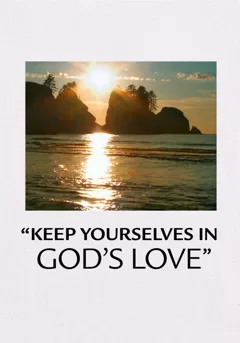
Downplaying the credibility of a support group, Helpekilden that was mentioned in Hilde’s testimony on Friday, Ryssdal claims that kindness is the common theme in all JW literature. He argues that suicide rates among Jehovah’s Witnesses are lower than in society outside, though the accuracy of this claim is uncertain.
Ryssdal discredits individuals with negative experiences, like Jan Frode Nilsen, stating that they are no longer objective witnesses. He brands Jan as biased and untrustworthy. While acknowledging potential wrongdoings on an individual level among Jehovah’s Witnesses, he asserts that the organization cannot be held responsible.
The judge challenges Ryssdal on whether having instructions about shunning would constitute wrongdoing, to which Ryssdal paradoxically responds with a firm NO, further highlighting the inconsistency in his arguments.
He asserts that withholding food from children, leading to starvation, would be considered wrongdoing, but shunning/disfellowshipping is not. I want to emphasize once again, if you find this triggering, take a break.
Ryssdal claims that there is no doctrine, Watchtower instructions, or any guidance—only the Bible. He argues that “negative social control” in the law is applicable only to extreme practices like ritual mutilation or forced marriage, which he contends do not apply to Jehovah’s Witnesses.
The judge corrects Ryssdal, expressing visible irritation. The definition of a child seems challenging for Ryssdal, while the judge appears more certain. Ryssdal’s defense includes the notion that there is no lower age limit to cease being a child.
Ryssdal seems fatigued by this point, with no sense of victory. He acknowledges that as long as disfellowshipping is part of the religion, it falls under their religious freedom. Ryssdal argues that the organization has the right to choose who is part of their religion, emphasizing that nobody can be forced to interact with someone they don’t want to.
He brings up the European Court of Human Rights (ECHR), mentioning the Holocaust to support his argument for religious freedom. Going into the history of funding, while the Watchtower representative is accused of lying about only baptized members being counted in funding lists.
As the day nears its end, Ryssdal points to Russia and draws parallels between deregistration in Norway and the severe consequences in Russia. He reads ECHR verdicts against Russia, prompting a strong confrontation from the judge. The judge questions Ryssdal about the State’s role if there were enforcement, and Ryssdal struggles to provide a clear answer, admitting that it’s not his job to draw lines but to represent his client.

Finally, there’s a sense of honesty in Ryssdal’s acknowledgment of his role in representation and leaving the judgment to the court.

Jehovah’s Witness Lawyer Ryssdal and the Judge conversate in the courtroom, along with the testimony of Jehovah’s Witness Ben Elder
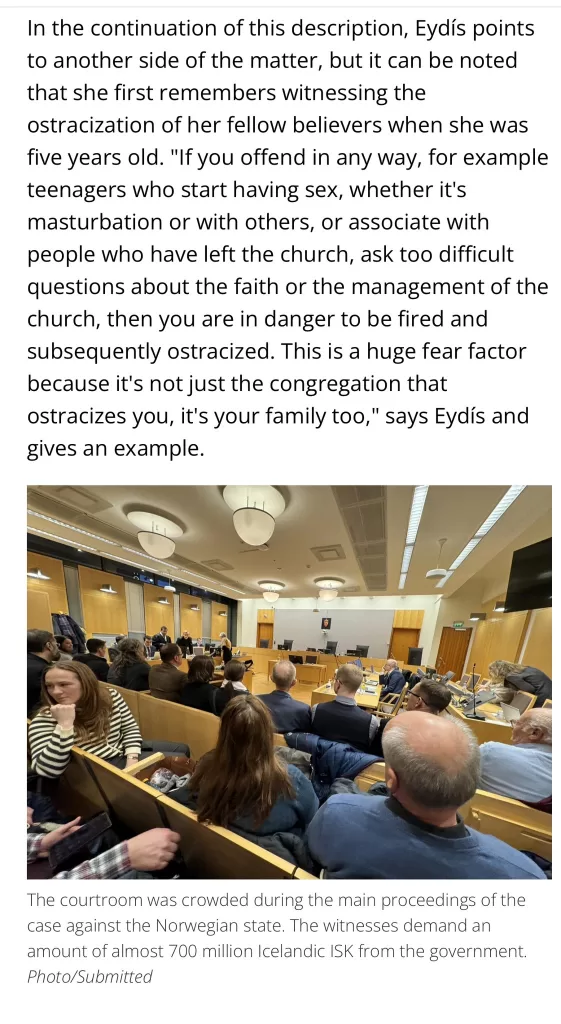
Day 9 January 18th, 2024 Is a storm of triggering and hypocritical statements towards the harmful practice of shunning that the Jehovah’s Witness Organization practices. The following does not read lightly, so please be wary about continuing if there is a possibility of it triggering you.
Ryssdal, the Jehovah’s Witness Lawyer is continuing his arguments from yesterday January 17th with the Judge and State regarding the baptism of minors, neglect, the practice of shunning- and all of those combined.
He introduces his arguments by apparently stating “facts” that the organization agrees and practices.
Talk on religious freedom swirls around the courtroom along with the ECHR verdicts. Most of it has appeared irrelevant since “registration” is a differently defined word in all different countries.
The Judges replies with very forward questions as they did yesterday, asking Ryssdal what percentage of baptized are born-ins. Ryssdal says that is hard to say, as the Witnesses do extensive preaching and get lots of baptisms from outside. Ryssdal says that losing the registration will stigmatize Jehovah’s Witnesses, as a “dubious sect”.
Making their members feel “shocked” and that they are doing something wrong. It’s apparent to Ryssdal that Vartland and other media articles have picked up what is going on, and knowing the verdict has been resulting in a lot of “negative media articles” against Jehovah’s Witnesses (which, I mean he isn’t wrong)
A photo was released of representatives of the UK branch, and Head Quarters of Jehovah’s Witnesses listening in the courtroom on this day.
On January 16th, a former Jehovah’s Witness ended up calling the UK branch regarding the trial, asking for any information. In the recording, they stated:
We don’t know about any cases going on
We only know as much as you do
The news desk is updated frequently with what’s going on around the world
If it’s not been listed it’s because it might be “sensitive”
If anyone mentions it in the ministry just tell them you can’t comment because you’ve not heard about it
Although, it is clear that the United Kingdom Branch of Jehovah’s Witnesses is indeed listening in.

Rysdall tries to conclude the matter of disfellowshipping being irrelevant to the mental state of one, trying to delude the isolation, depression, and negative effects the practice has. He does this by mentioning Jan Nilsen’s testimony again, that since his story also shows how much he has rebuilt his life, he is doing fine and that there is no record of disfellowshipped ones being “unable to make friends.” This is an intense form of gaslighting.
This testimony was recorded by Larchwood who has been updating us every day about the trial as well. The link below is a recording of Ben Elder’s testimony in English.
Recording of January 19th Courtroom of JW vs Norway Trial by Larchwood
Ben Elder introduces himself as a Jehovah’s Witness, baptized at 13, his current role is working for an office named “Freedom of worship” based in Germany. He has no legal background (because Witnesses are not allowed higher education) -he was asked about this twice.
Elder says “They are grateful to intervene” and the association is a “Charitable body” that responds to threats to religious freedom. Elder makes the points about the psychological violence that parents use to their children for control, and how strong these accusations are to such a caring organization. He blames these claims on Anti-Cult organizations or ones actively opposing them.

Elder asks if now welfare services will start investigating the children and parents “Just because they are practicing bible teachings.”
Elder also expresses that the witnesses follow the doctrines and practices of their own free will, and also mentions how Ryssdal made the point that children have not been lured against their will by any trickery or any other inappropriate ways.


Again, as many former Jehovah’s Witnesses have seen before the former Jehovah’s Witnesses that cause awareness of the harmful doctrines, ones who simply don’t agree with the teachings, or ones who publicly express their pain- are labeled as “Disgruntled”
This has been a highly favored word in the Higher authority lingo of Jehovah’s Witnesses to define former members who do not agree with their teachings.
“The inquiry came as a result of a letter from the same disgruntled ex-witness concerning his theological interpretation of certain selected extracts from religious publications published by Jehovah’s Witnesses.”
– December 14, 2022 from Jehovah’s Witnesses to the State Administrator
While using a term also used often “Zealous” Elder says that these Disgruntled former congregants are zealous on negative media and stirring up government institutions to investigate based on “one-sided exaggerated claims”
Several high courts worldwide have addressed this, and Elder speaks of a long list of countries who have investigated the witnesses on this matter- which should tell you a lot already, that it has raised a major issue.
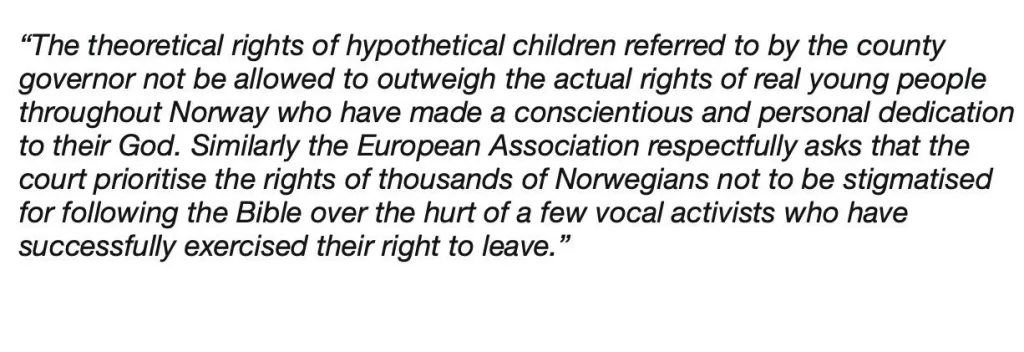
Links to articles 01/18/2024:


It is the final Day of this strenuous yet enlightening trial, Day 10 January 19th, 2024. The trial is coming to an end with their closing arguments, and we will hear the final verdict in about 4 weeks. As I summarize for reminders on who is who-
Ryssdal- Jehovah’s Witnesses lawyer
Gabrielsen/ “The State’- Norways, State lawyer
Gabrielsen starts by ripping apart the jumbled and ever-changing denial of the organization’s practice of shunning, saying that the exceptions regarding special incidents allow contact doesn’t mean there is no shunning. She emphasizes the heavy burden on those who leave and how the right to leave religion freely is breached.
She then points out how anyone especially recognized in the LQBTQ community has even worse consequences when it comes to their family.
The Jehovah’s Witness organization is strictly against the LGBTQ organization. If you want to be deemed worthy enough for baptism as a member, you are not allowed to pursue any feelings of the opposite sex, nor identify as other.
Ryssdal, Watchtowers Lawyer seems distraught today, attempting to speak minor details, seemingly trying to get the state to calm down the line of statements they are making.
Gabrielsen explains how there is a fear for kids being raised/taught these teachings based on the disciplinary actions of a judicial committed, marking, being disfellowshipped, and how everyone outside of the organization is labeled “worldly” or “bad associations” and are taught by publications, videos, etc. on how not to associate with them.

Gabrielsen highlights the previous testimonies of the former Jehovah’s Witnesses on how the shunning/ disfellowshipping process affected them even as minors. This is because the judicial process, a judgment on a sin the local elders based on their view needs disciplinary action is very stressful and traumatizing for minors, and adults. Several of the former Jehovah’s Witnesses talked about this happening before 18 years of age.
According to the law, spreading information (marking, harsh judgment, avoiding) throughout the congregations is abuse.
Isolation of minors hurts their mental development and connections that need to be built up through a secure environment. Even being reproved- which is a private or public disciplinary act that can happen to you in the congregation- no matter the age after baptism creates a wall of judgment and separation from the rest of the congregation. Meaning the minor may be avoided or treated differently by their friends and family. After baptism, the threat of losing this connection can deeply affect a child’s development.
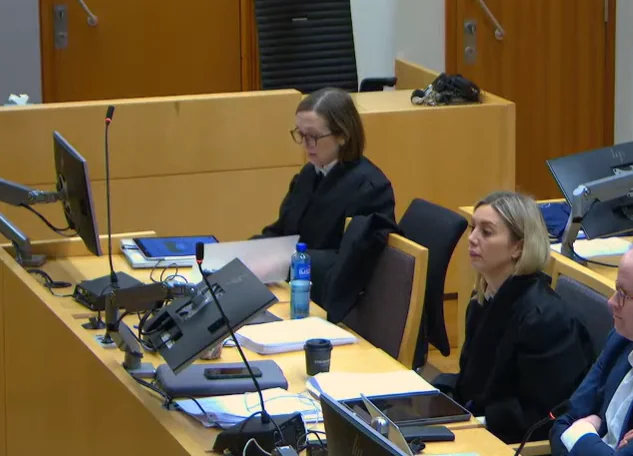
The Norwegian law says that all religions must be supported “equally”- This is what Ryssdal intends to agree with regarding the funding they have lost (5 million U.S. dollars)
Yet the state argues that this just means all religions must have an equal right to apply, and there’s a possibility of them being unapproved if they don’t follow the terms. The state shows that there’s nothing in the constitution that says there can be no terms at all for funding. The intention it seems has always been to set some terms for taxpayer payout.
“The State has room for considering how the funding shall be organized.” and it has to be the same for all religions. They can’t have different terms for Christian groups than Muslim groups etc. This means that equal treatment is secured by the fact that all religions have to meet the same terms.
This does NOT mean that all religions can ignore the rules and demands and still get their money.
Gabrielsen starts to seem irritated at Rysdall’s interruptions and minor details, so she has to stop her argument.
They then go through the ECHR-verdicts JW/Ryssdal have used, and how they are irrelevant to this case.
All, the Jehovah’s Witness side and the State agree that you cannot exercise pressure to force someone TO change a religion, but can you then be allowed to use extensive force to exercise pressure to STOP someone from leaving a religion?
Gabrielsen talks about the freedom of parents, regarding what they choose for their child, which will always at some point have to be put up against a child’s right to protection and integrity when those go up against each other.
As a source, Jan Nilsen stated regarding the child’s right to protection: “Your right to swing your fists freely will always have to be considered against my nose’s right to not be broken.”
The point though is to let the people live and leave freely.
“For myself and the other ex-witnesses, it is not primarily about winning in court-,” says Jan Nilsen. “Whether Jehovah’s Witnesses lose state support is a trivial matter. Many of those who have testified in court have never told their story in that way before,” he says that this in itself has had great significance. He also says that he and the other ex-Witnesses have found it strange to hear how Jehovah’s Witnesses present themselves as a vulnerable minority. – Because on an individual level, we are the ones who have been the minority. Individuals in the face of a worldwide organization that has billions on its books and millions of members. Nilsen also says that he thinks the government lawyers have done a good job. According to him, they have remained calm, and resisted what he sees as a strategy of obfuscating and confusing by highlighting irrelevant points and examples: – Jehovah’s Witnesses want to angle this as a matter of religious persecution. There I feel that the lawyers have been good at saying: “Relax, it’s not about that, it’s about a state support scheme”. -Vartland article 01/19/24″Done in court: – Jehovah’s Witnesses want to frame this as a case of religious persecution”
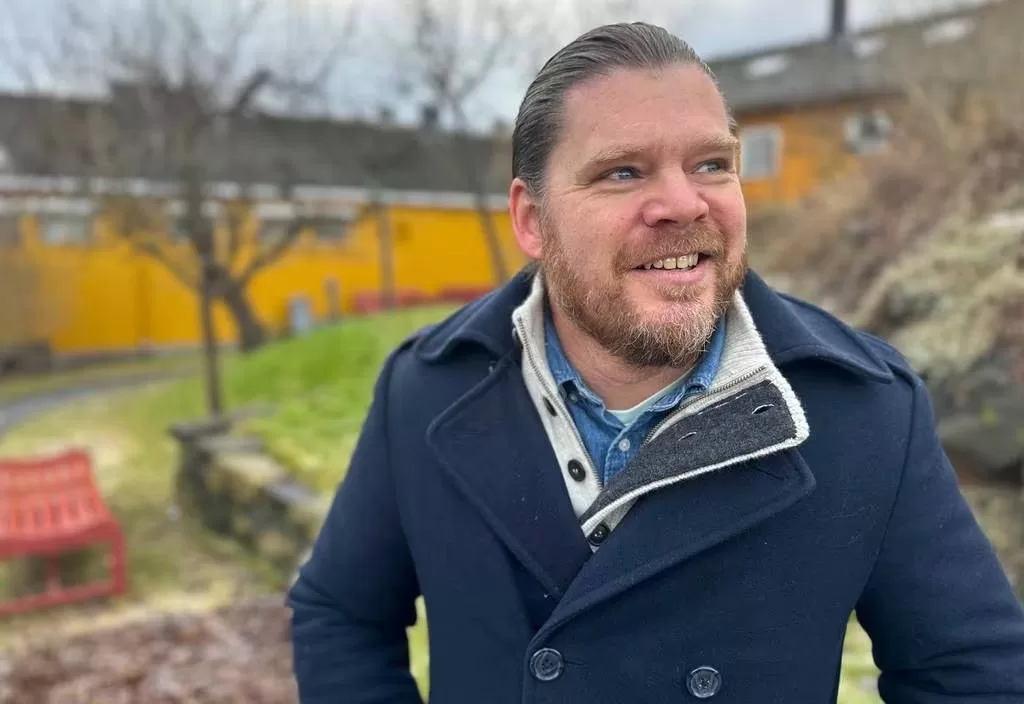

Aiding Transparency to Watchtowers teachings. If you have additional information about this topic or would like to reach the author- Please email [email protected]